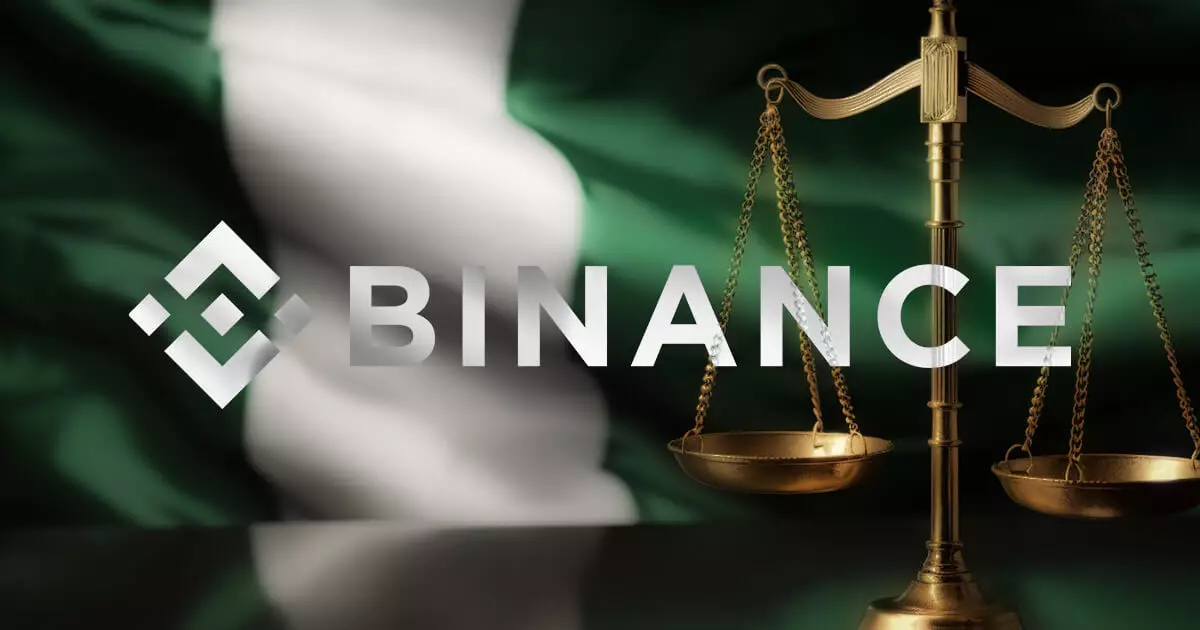Nigeria’s Federal Inland Revenue Service (FIRS) has embarked on a contentious legal affair with crypto exchange giant Binance Holdings Limited, demanding an astronomical sum exceeding $81 billion in perceived unpaid taxes and penalties. This claim, revealed by the local report from Nairametrics on November 19, comprises $79.5 billion attributed to alleged economic damages, augmented by an additional ₦231 million (approximately $153,223) linked to Binance’s operations in the region. Furthermore, the FIRS is also pursuing nearly $2 billion as outstanding income tax for the fiscal years 2022 and 2023. Such figures are staggering, especially when placed alongside the $4.3 billion that Binance has previously settled with U.S. regulatory bodies last year.
Should this demand proceed to enforcement, it would set a new precedent as the most substantial financial penalty levied on a cryptocurrency entity by a national entity. The FIRS’s assertions bring to light the regulatory challenges associated with cryptocurrencies, particularly how companies navigating international markets must comply with local tax and legal frameworks. The failure to adequately disclose business operations in Nigeria, the core of the accusations, accentuates the complexities of transnational business practices in the digital finance realm. The agency insists that Binance has thrived on a lucrative user base in Nigeria, allegedly reaping substantial profits while neglecting tax responsibilities.
At the heart of FIRS’s claim is the assertion that Binance violated the Companies Income Tax (CIT) Act and the Significant Economic Presence (SEP) Order, which obligates foreign firms earning above ₦25 million (equivalent to $30,000) annually from Nigerian customers to comply with taxation regulations. The authorities estimate that Binance accrued a staggering net revenue of $35.4 million generated from an impressive trade volume of $21.6 billion in just 2023. Adding weight to their claim are the claims of a 10% penalty for tax evasion alongside a 26.75% interest charge commencing January 1, 2023, and extending through that year.
This legal pursuit is part of Nigeria’s intensified scrutiny of Binance, following previous charges against Binance executive Tigran Gambaryan, who alleged that the government officials were leveraging accusations against Binance as a mechanism to distract from internal economic difficulties. Gambaryan’s characterizations of the situation suggest a troubling narrative of alleged corruption within the Nigerian bureaucracy. In contrast, Nigerian officials have dismissed these claims as false, drawing a line between genuine regulatory enforcement and the alleged deflection of responsibility for broader economic issues.
As the situation unfolds, the cryptocurrency sector watches with keen interest. This legal confrontation not only challenges Binance’s operations but also highlights the broader regulatory landscape within Nigeria and globally. As nations grapple with the implications of cryptocurrency on traditional financial systems, the response from Binance and other crypto entities could set a tone for future regulatory frameworks. Whether or not Binance will mount a robust defense against such unprecedented claims remains to be seen, but one thing is clear: the outcome of this case may significantly impact the crypto industry’s landscape in Nigeria and potentially beyond.

